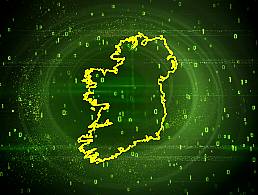The UK’s National Data Strategy aims to build ‘a world-leading data economy’ and cultivate a workforce with the necessary skills.
The UK government has said it will train hundreds of people employed in the public sector in data science over the next year. It comes as part of the country’s National Data Strategy, which promises to transform the UK into “a world-leading data economy”.
Core elements of the strategy aim to build “trust in the data ecosystem” as well as data skills and access. The strategy plan states that in today’s digital economy, companies that can “use data effectively” are more competitive and “data-literate” people have a market advantage. However, it goes on to say that the UK has a “limited pool of data-skilled individuals”, particularly due to the cost of hiring and retaining those with the right qualifications.
In response, the government will work towards creating an “institutionalised data culture, where data is seen as everyone’s job”.
“Senior leadership and effective governance will be key to establishing a data culture across government, but everyone, regardless of seniority or profession, should see data as a priority in their role,” the strategy document says.
Measures the UK government said it will take include prioritising the right skills and recruiting leaders with data and digital expertise “to build a strong cadre of technical, policy, legal and analytical data experts”.
One of its most ambitious commitments is a plan to train 500 analysts in the UK’s public sector by 2021. Training will be rolled out through the Data Science Campus at the Office for National Statistics, the Government Analysis Function network and the Government Digital Service, which is leading digital transformation in the UK government.
Data training available to all civil servants will also be reviewed, the strategy said, with a view to “enhance and extend” the current offering.
‘Allow the power of data to be unlocked’
The National Digital Strategy is led by Gaia Marcus of the UK’s Department for Digital, Culture, Media and Sport, who previously served as the data strategy lead for charity organisation Parkinson’s UK.
Writing about the strategy last year, Marcus said: “As government, we have to take a step back and think more broadly in terms of wider public need and what needs to be done to allow the power of data to be unlocked for all elements of society and the economy.
“Through the National Data Strategy process, we will need to reflect on what we mean by certain things, to contribute towards creating a ‘common language’ that will help engage as many people as possible so that any strategy is addressing the needs of society. One easy way to start encouraging people to engage with this topic is to make the language that surrounds it more accessible and easy to understand.”




